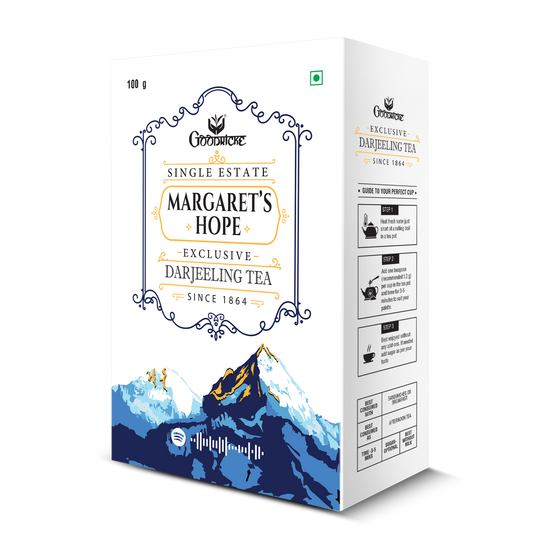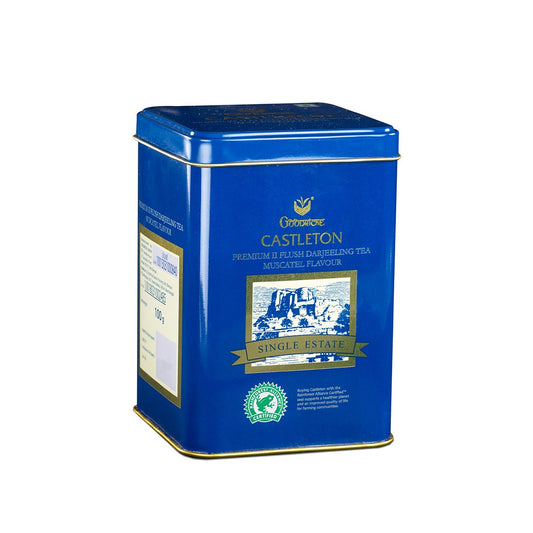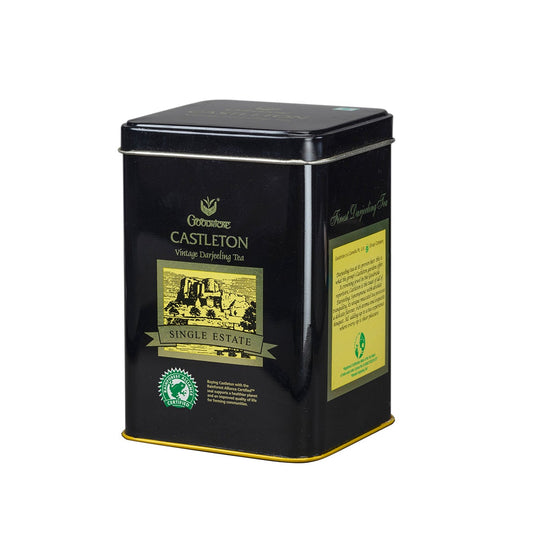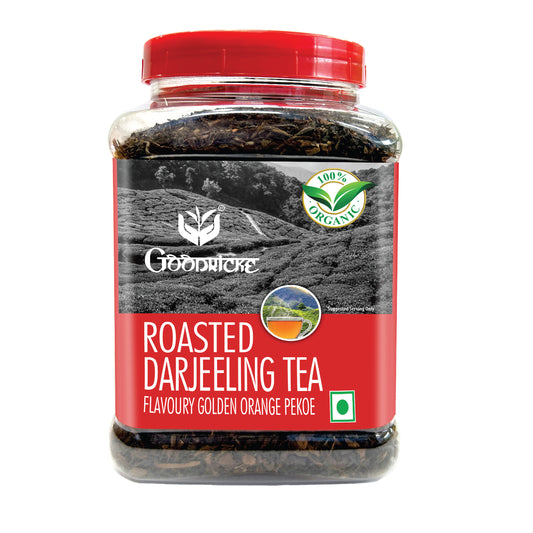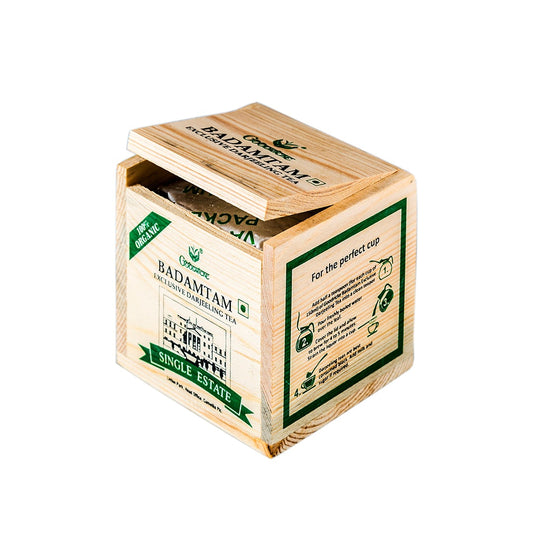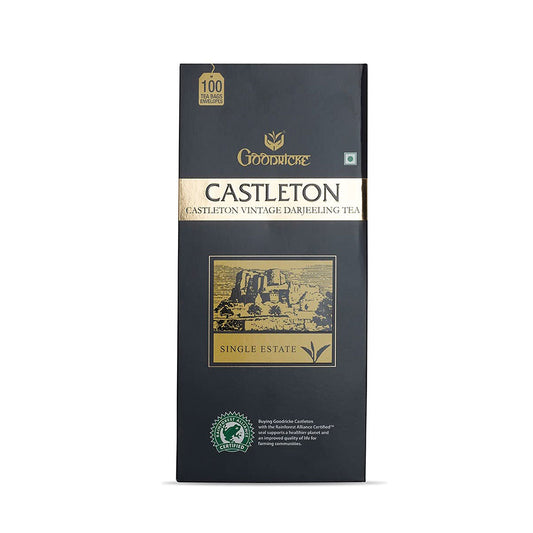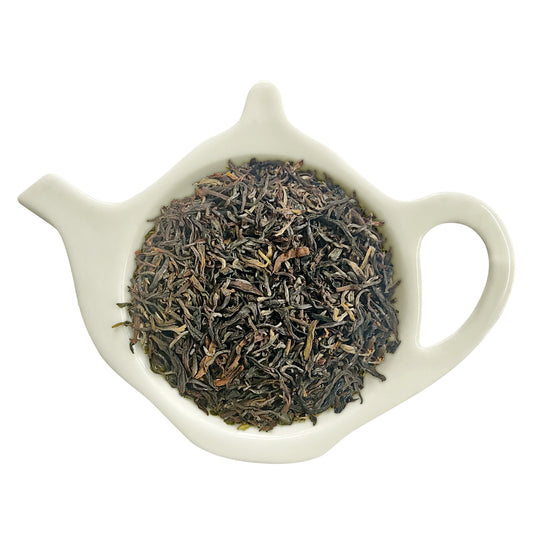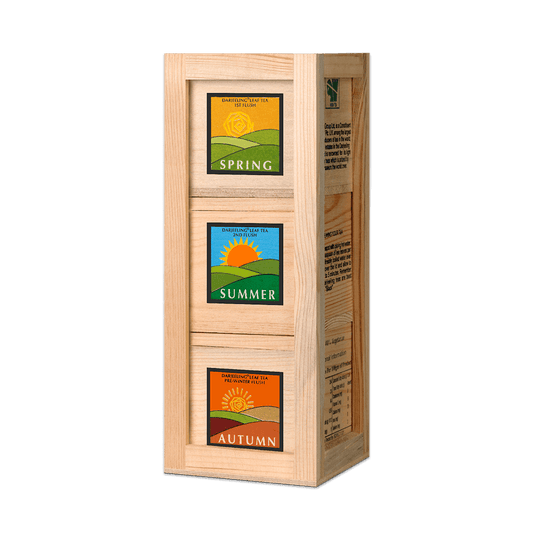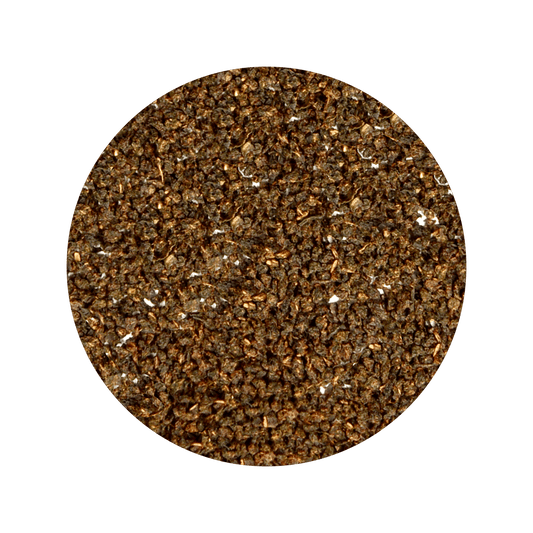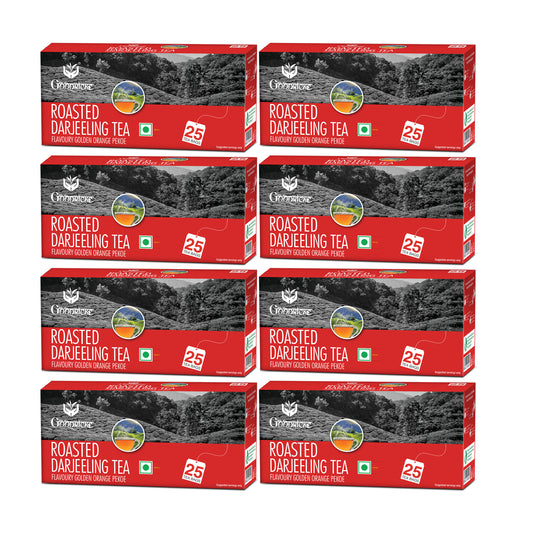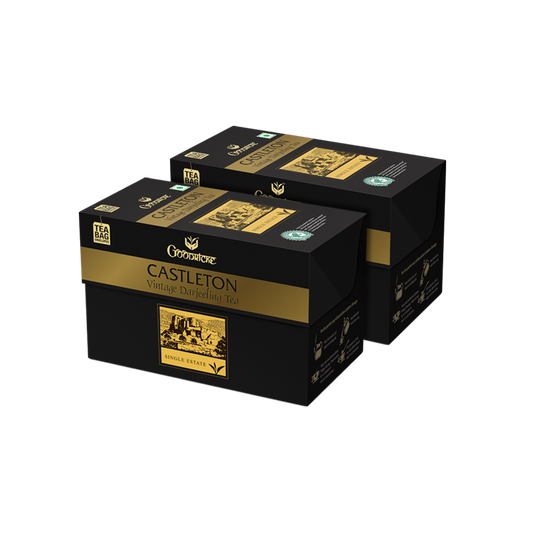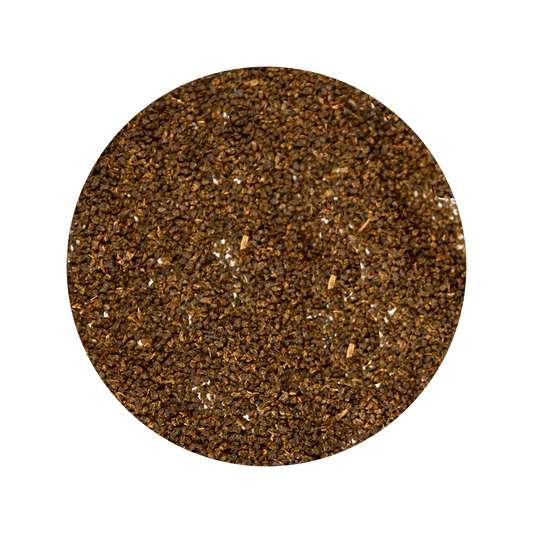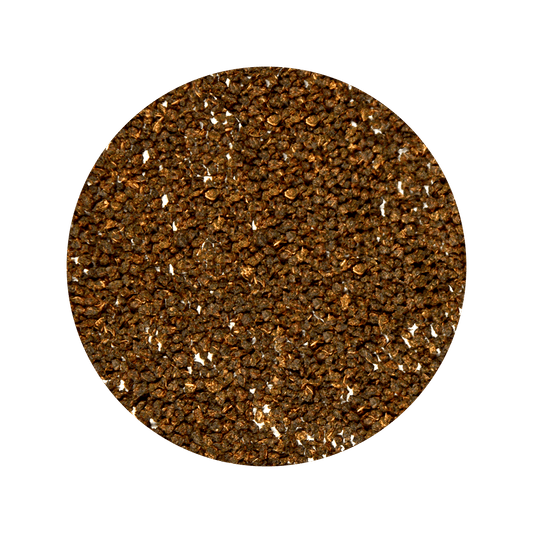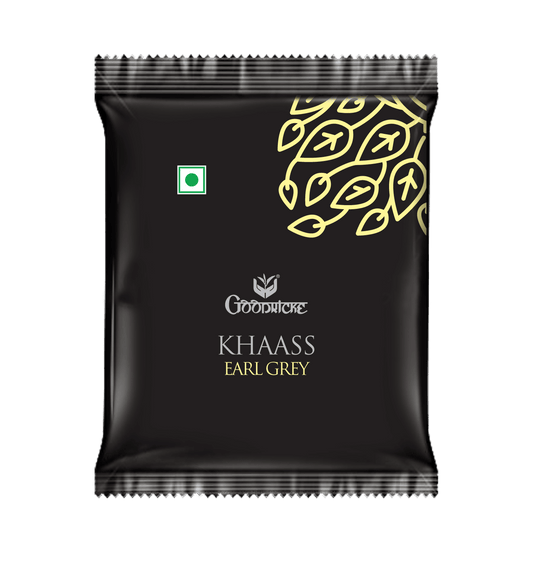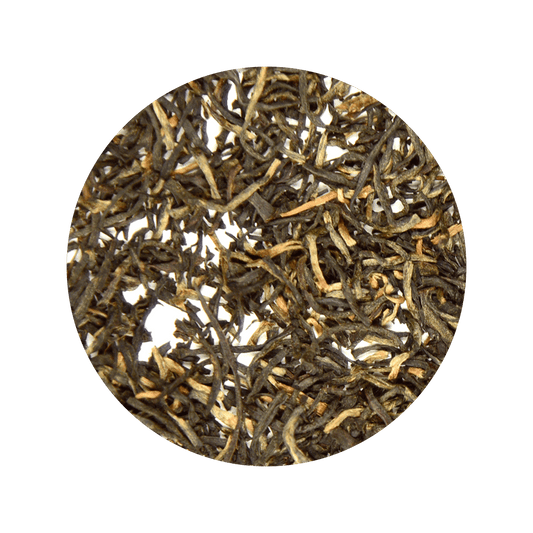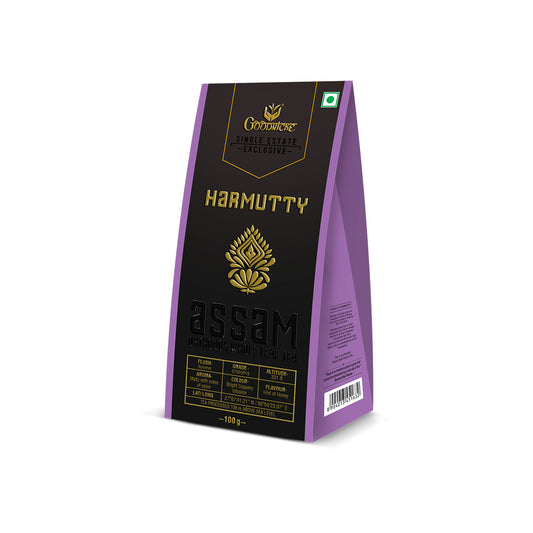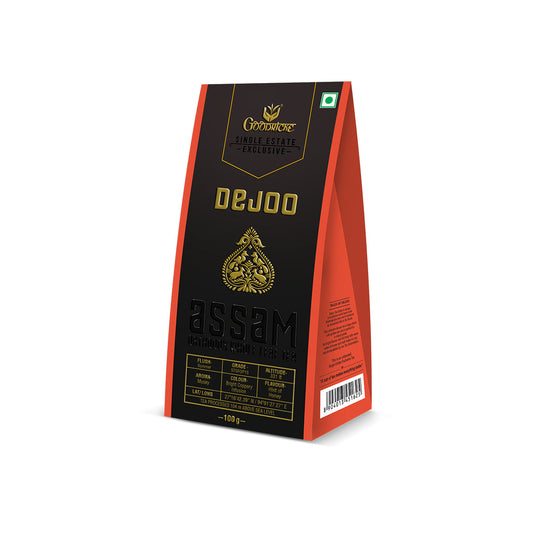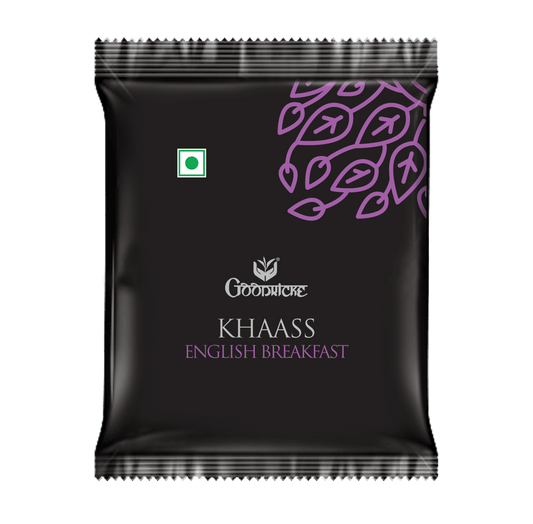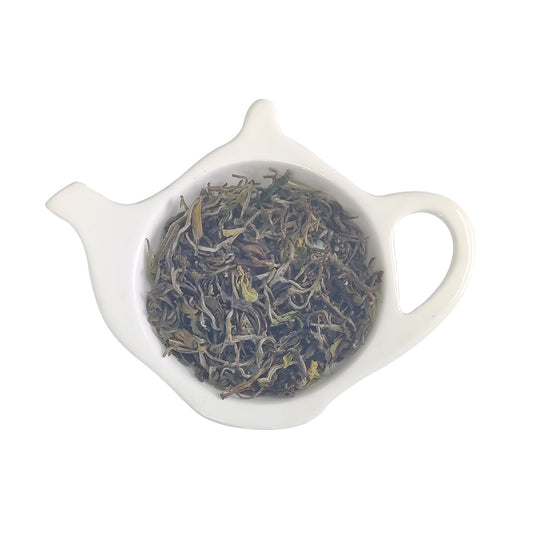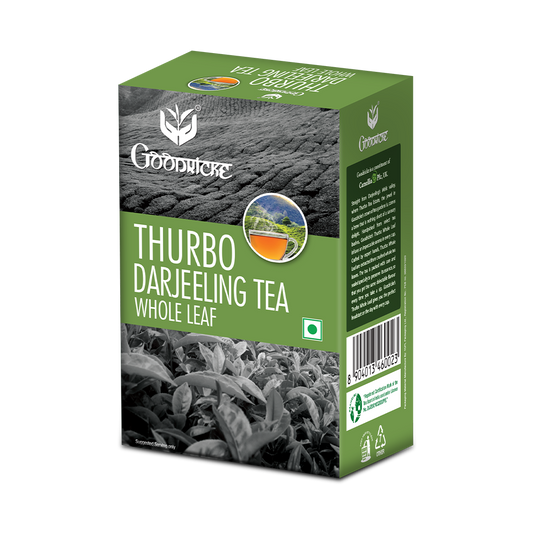-
Margaret’s Hope - 100gm (Pack of 2)
-
Castleton Premium Muscatel Darjeeling Tea - 100gm (Pack of 2)
-
Castleton Vintage Darjeeling Tea - 250gm (pack of 2)
-
Roasted Organic Darjeeling Tea-250 gm (Pack of 4)
-
Badamtam Single Estate Organic Darjeeling 100 gms (Pack of 5)
-
Castleton Vintage Darjeeling Tea, 100 Tea Bags (Pack of 2)
-
Margaret's Hope Summer Black Tea 2024 – 50gm
-
Seasons 3-in-1 Darjeeling Leaf Tea (First Flush, Second Flush, Pre-Winter Flush) (Pack of 4)
-
Borbam Delight Assam Tea (Pack of 2)
-
Roasted Darjeeling Tea bags (25 tea bags) Pack of 8
-
Castleton Vintage Darjeeling Tea, 25Tea Bags (Pack of 4)
-
Amgoorie Orange Pekoe - 250 gms (Pack of 2)
-
Amgoorie Special Assam Tea (Pack of 2)
-
Khaass Earl Grey Tea, 25Tea Bags (Pack of 5)
-
Dejoo Golden Tippy Assam Tea 100 gms (Pack of 2)
-
Harmutty Single Estate Assam Orthodox Whole Leaf Tea - 100gm (Pack of 2)
-
Dejoo Single Estate Assam Orthodox Whole Leaf Tea - 100gm (Pack of 2)
-
Khaass English Breakfast, 25Tea Bags (Pack of 10)
-
Castleton Premium Spring Moonlight Tea 2023 (25 gm) (Pack of 2)
-
Thurbo Leaf 250 Gms (Pack of 4)
Black tea is a type of tea that is oxidized and made from the leaves of the Camellia sinensis plant. It has a strong flavour and a dark color.
Learn more: The leaves are plucked, withered, rolled, and oxidized before drying.
- The oxidation process gives black tea its distinctive flavour, aroma, and dark colour.
- Known for its robust flavours, black tea’s taste is rich and malty, containing hints of fruit or floral notes. The color of this brewed tea ranges from amber to dark reddish-brown, depending on the type and quality
- It is a popular beverage worldwide, consumed both hot and cold.
Black tea can be enjoyed plain or with added milk, sugar, or other flavours. It is served as a breakfast tea or a base for popular beverages like iced tea and chai.
How do I develop a taste for it?
To develop a taste for black tea, try milder varieties and gradually experiment with different types and regions.
Adjust brewing parameters, such as water temperature and steeping time, to bring out the best flavors. Adding milk, sweetener, or lemon can help balance the taste initially.
Increase exposure to black tea over time and explore flavored options for a familiar taste.
Stay open-minded and patient throughout the process of acquiring a liking for black tea.
How to Make Black Tea
Follow these simple steps to make a delicious cup of black tea:
1. Boil water: Start by bringing fresh, cold water to a rolling boil. The amount of water will depend on how many cups of tea you want to make.
2. Preheat the teapot: Pour a small amount of hot water into the teapot to warm it up. Swirl the water around and discard it.
3. Add tea leaves: Measure approximately one teaspoon of black tea leaves per cup of water and add them to the teapot.
4. Pour hot water: Slowly pour the hot water over the tea leaves, ensuring they are fully submerged.
5. Steep the tea: Allow the tea to steep for 3 to 5 minutes, or adjust the steeping time to your desired strength. Longer steeping will result in a stronger flavor.
6. Strain or remove tea leaves: Once the desired steeping time is reached, strain the tea leaves using a tea strainer or pour the tea through a sieve into another teapot or serving vessel.
7. Serve and enjoy: Pour the freshly brewed black tea into cups and serve. You can drink black tea as is or add milk, sugar, honey, lemon, or other flavorings according to your preference.
Grades of Black Tea
Black tea is graded based on various factors, including leaf appearance, size, quality, and processing methods. Here are a few examples of black tea grades:
Whole Leaf: FTGFOP (Finest Tippy Golden Flowery Orange Pekoe), TGFOP (Tippy Golden Flowery Orange Pekoe), FTGBOP (Finest Tippy Golden Broken Orange Pekoe), TGBOP (Tippy Golden Broken Orange Pekoe)
Broken Leaf: FBOP (Flowery Broken Orange Pekoe), GBOP (Golden Broken Orange Pekoe), BOP (Broken Orange Pekoe) Fannings: GFOF (Golden Flowery Orange Fannings), FOF (Flowery Orange Fannings)
Dust: GD (Golden Dust), D (Dust) These grades represent the quality and appearance of the tea leaves and can help you choose the type of black tea that suits your taste preferences.
Black Tea and Weight Loss
Black tea can be a helpful addition to a weight loss journey when combined with a balanced diet and regular exercise. Here how black tea can support your weight loss efforts:
Boosts Metabolism: The caffeine content in black tea can help boost metabolism, allowing your body to burn calories more efficiently.
Provides Energy and Focus: The caffeine in black tea provides an energy boost and can enhance focus and alertness during physical activities.
Controls Appetite: Black tea can help control appetite and reduce food cravings, thanks to the polyphenols it contains. These compounds can promote a feeling of fullness and prevent overeating.
Regulates Blood Sugar: Drinking black tea without added sugar may help regulate blood sugar levels, reducing the likelihood of energy crashes and cravings for sugary snacks.
Rich in Antioxidants: Black tea is rich in antioxidants, such as catechins and flavonoids, which can protect cells from damage caused by free radicals. A healthy body functions optimally, supporting weight loss efforts.
Caffeine Content in Black Tea
The caffeine content in black tea can vary depending on several factors, including the specific type of tea, brewing method, and steeping time. On average, an 8-ounce cup of black tea contains 30–60 milligrams of caffeine.
Indian black teas, including Assam, Darjeeling, and Nilgiri teas, contain varying amounts of caffeine. Here’s an overview of the approximate caffeine content in Indian black teas:
Assam Tea: Assam black tea is known for its robust and bold flavor. On average, a cup of Assam tea contains approximately 50–90 milligrams of caffeine per 8-ounce serving. However, the caffeine content can vary depending on factors such as the specific tea estate, tea grade, and brewing method.
Darjeeling Tea: Darjeeling black tea is celebrated for its unique muscatel flavor. It has a lower caffeine content compared to Assam tea. A cup of Darjeeling tea contains 40–70 milligrams of caffeine per 8-ounce serving.
Nilgiri Tea: Nilgiri black teas from the southern region of India tend to have a milder and smoother taste. They contain a moderate amount of caffeine, ranging from 30-60 milligrams per 8-ounce cup.
These figures are approximate averages and can vary depending on factors such as the specific tea variety, leaf grade, brewing time, water temperature, and personal brewing preferences.
If you’re sensitive to caffeine or prefer a lower caffeine intake, you can opt for decaffeinated versions of Indian black teas or explore herbal teas that are naturally caffeine-free.
Indian Black Tea and Masala Chai
Masala Chai, which means “spiced tea,” is a popular tea-based drink in India and is becoming popular worldwide. It is often prepared by steeping black tea leaves, sugar, and a variety of spices in steaming milk. The resulting concoction is a sweet, spicy cup of tea with the flavors of masala ingredients.
While Indian black tea is commonly used to make masala chai, it can also be enjoyed on its own. The diverse range of Indian black teas, such as Assam, Darjeeling, and Nilgiri, offer unique flavors and aromas that can be appreciated without the addition of spices and milk.
Whether you choose to savor a plain cup of black tea or indulge in the aromatic delights of masala chai, Indian black teas provide a delightful experience for tea enthusiasts.

